Por: Emily Díaz
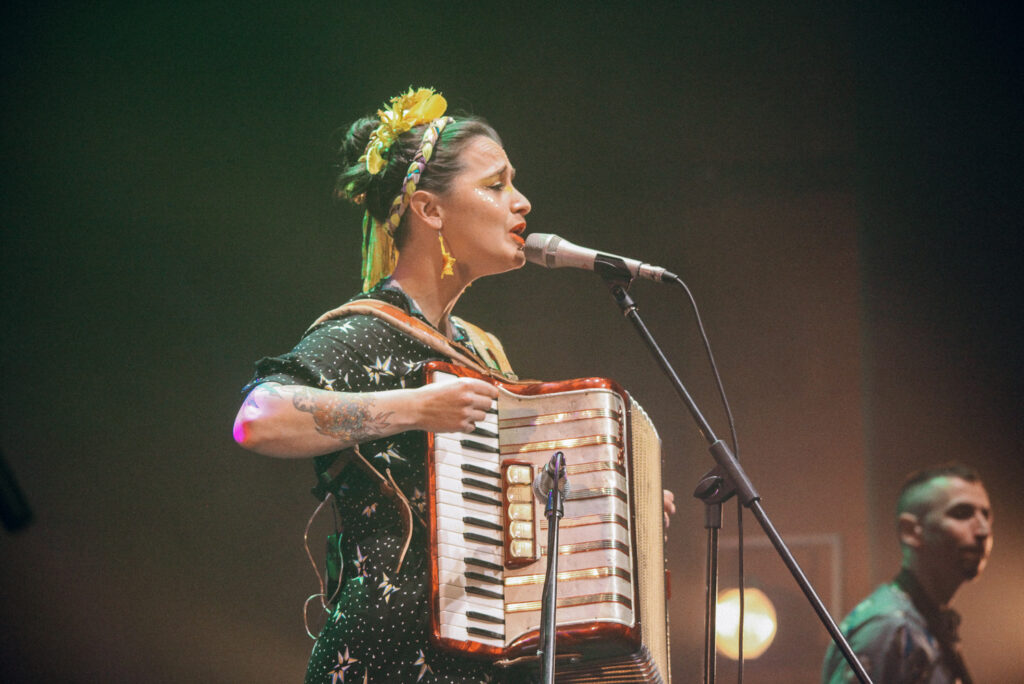
Emily: Hello, (laughs) how are you?
Pascuala: I’m fine, this is going to be my first interview in English in three years! (laughs)
Emily: I am so honored, thank you so much, I’m very excited.
Emily: Um, something that really sticks out to me when thinking about your music and thinking about your intentionality with what you do and the cultures that you pull from, is how your music is very much so multicultural. You pull from Chilean Folklorico traditional music and even Indian sounds and Indian-inspired tones. I’d like to know what genre or style has been the most surprising to involve in your music or to discover for your music.
Pascuala: Yeah, yeah- the reason that- why I mix everything is because- em when I was kid I was living in India for one year with my family because my parents they went to travel to- to work there as an artist and with my sister we went with them, and I was very surprised that in Chile we grow up with a very repressive culture. They always- I would, they tell you “life is like that”, “things are like that”, “songs are like that”, “music must be in that way”. When I went to India I realized everything is possible to be in
another way. For example, one song is possible to last one hour and there’s no problem and there’s 1,200,000 people- eh, they are OK listening one song that lasts for one hour. So I was really surprised of that and then when I came back I was 11 years at that moment. And when I came back to Chile, I was 13 and I was beginning to be a teenager and everything for me was like: you are telling me that this is “that in that way” but I already saw its possible to do it in the other way. I was like (explosion sound) at that
moment, and eh I realize also that we’re supposed to be Westerns in Latin America but I start to see that we are also very Oriental for another way of communication with nature for example. Our ancestral cultures, they communicate with nature in someway that connect us very much oriental culture and also how the landscape builds a way of seeing and feeling life for example, if you grow in a mountain, like Andes Mountain maybe with the people that your most similar is with, Himalayan people. Yeah? Or, if you grow up in an island on the beach every day with your feet on the sand maybe you are very similar
to any kid that grows on another island with their feet on the sand. So, I realize that culture has many ways of feeling and looking and speaking about culture. So, then when I studied music in the university, I just learned how to feel like a German man (laughs) from the fifteen century, I don’t know! I was all of a sudden about how Bach or Beethoven or Mozart they thought music was. And then I decided to go to university in India and study singing there, to learn about Dadras, about improvisation, about
another way of feeling rhythms, and making breaks. And I was listening to Mapuche music and I was feeling that they’ve got the same feeling that Indian people developed in the classical music because, for example, in Mapuche people, they always sing with a lot of glissando. Like for example, (sings). So when I went to India and I start singing, I was able to do that like (sings). Like (sings). But its feeling sound like nature, like as part of any other energy of the nature. Sound like (sings). And that made me feel, deeply feel that I’m not western. I’m not oriental, and Latin America is something not Western and not oriental and this is the feeling that we got all our generation that by another way of looking the world it’s not enough. So, that’s why I always do things that are diverse because biodiversity is the essence of life and also is the essence of music. So, I’m not feeling I am Western, so oriental “strange” to me or I’m not feeling I’m not an of origin woman, so I’m not able to cross the border and go to sing that that music- I am not feeling I agree with that type of borders.
Emily: Yeah, from everything that you’ve said it’s very clear that your music is very fluid and it doesn’t need to be in this Western box which I think is very beautiful, and I think extremely progressive, especially in today’s culture where I feel like people are very used to putting music in boxes and want to put it in a specific genre and that doesn’t have to be the case. How do you feel that your feminist dialogue kind of comes through in your music, because I know that in a lot of your music it’s about, you know, taking back power for women, especially, and kind of giving women voices through metaphor and through lyricism. So how do you feel that that has progressed throughout your career?
Pascuala: I grew up in a very “only males” habitat.
Emily: Yeah.
Pascuala: -In learning music, because I am 37 years old and in that moment few woman want to study composition in the university and in Chile this is still a very important thing that we are only 11% of women in the musical industry. It is very few. But I know I am also part of the “equal in Spotify-” “equal movement” and I know this is also very- we are not in equality also in the world. I was reading for example that lists at 1% of music created by women are in the top ehEmily: The top 100 charts, yeah
Pascuala: So, not only in Chile it’s like that, in all the world, in music- especially music in arts because I have seen in dance its different, in visual arts it’s different. But, in music, womans are very far fromequality. So, I now yeah I’m reading more about statistics and I know that, but I know I knew that but because of my feeling of being a woman in the music industry since I was a teenager.
Emily: Yeah, you didn’t have to read it you knew from lived experience.
Pascuala: Yeah, I know now the numbers. But I, I grew up always feeling that me and
my partners- we were always exigidas- no se como se dice?
Emily: Yeah, yeah- demanded of, required to?
Pascuala: Yeah, required to express ourselves in a very logical way or rational way of performing speech and to accommodate your feelings and your thinking to that format. That’s why I don’t want to create all my songs in “song” format- also is by another way of thinking and feeling- the logic that you’re supposed to talk with. So many times when I was in the university, my partners, they were really good musicians but they expressed themselves in another way- not the academic, rationale, “dialectica-” so, they were like,
looked like, “ah they are- this is a woman but a disgrace – she doesn’t know what she’s talking about” or she doesn’t
Emily: She’s not doing it the “right” way.
Pascuala: Yeah, she doesn’t express herself in the way we need to. So, always that was the feeling inside the university. So, when I decided to make music I start to find for that another ways of- express yourself. Because music is a language that is not- rational language. It’s not need to be. It’s something metaphoric, symbolic, abstract. So, when I write my songs I love to feel that always and I think this is very feministic because, its not to be creating in the- with the logic- with the binary way of seeing the world or resolving a problem or making your own composition- fitting into this way, you’re going to be excepted by the men.
Emily: Yeah, yeah.
Pascuala: And now, I am also not in this creative part- I am very involved in the movement of women in music in Chile, in “commission de gender-” commissions, and in the national “red” of women in music: Red de Organizaciones de Mujeres y Disidencias de la Musica Associadas. I’m very a part of that work that is every day and every day we’re bashing the government to-to have some more equality for women in
industry. So, this is that political part I’m very involved as well.
Emily: I think that’s wonderful, I think you speak a lot about fluidity and- and how you go about music and I feel like it’s true that in a lot of male- in a male-driven industry that is something that is very trailblazing and a lot of people will question you and be like “why aren’t you doing it this way” or “why aren’t you doing it that way.” Something that’s also interested me is how you’ve talked in the past about how movies have sometimes inspired your music or the soundtracks to music. I think you mentioned once a movie kuristica called, “Tiempos de Gitanos” that really inspired your outake to music.
I’m interested to know if any modern movies have inspired you again, or if movies are something that you’d be interested in in terms of soundtracks and involving your music and film?
Pascuala: Ah yes, yeah my grandmother, my father, my mother, and my sister- they
are all visual artist. So, I feel like sometimes I want to create a song and I have to find for
some postcard or some- any kind of image to listen the music of that picture. You know?
Like, this is the way I am very connected with visual arts and dance and theatre. Now, in
this moment, I’m more trying to get connected with theatre and dance because I feel
also music can be- now, music is a visual art as well. Yeah? So we need to learn more
about how to build our performances thinking that we are already a visual art, so I’m
trying to learn this year I’m going to go to the University again to learn how to direct my
own shows
Emily: So cool!
Pascuala: Because I think it’s a- many technical things that we need to know, and when I study music I never saw that like- really thinking of music as a performing art. So, I’m more involved with theatre now, but yes it’s also dangerous because we are looking so much publicity- that when your imagination needs to find some image to express yourself, you are very used to publicity. So, sometimes you- the first idea you got in your mind is very contaminated by publicity and this is very difficult in this moment with social media. I am feeling something is not… I’m feeling like we’re all getting inspired by the same images and maybe the art is going to be very monothematic in the next years. This is very dangerous, we all see Netflix and you find some “serie” on Netlix and you like it and you get contaminated by- by this and then you can see, “ah this person also saw that and that’s why now she’s going to wear some color in the clothes or some or some- her music turns into “that” because she saw “that” publicity same like
me. It’s very dangerous. Sometimes when I’m creating, I try not to listen to anything and not to see anything.
Emily: Yeah, people are very much following in- in all kinds of trends, all the time and there’s always a new trend that everybody wants to be a part of.
Pascuala: Yeah. But, for example, a movie after Tiempo de Gitanos that I enjoyed a lot was Melancholia from Lars von Trier.
Emily: Oh! It’s also old, but but the thing that I liked in this movie is that the history’s presented in parts and the main characters- they change their personality. In the first, part you think one person- one character is the shy one and the other is a strong one and then in the next part, the shy is the strong and strong is the shy. And you can see how we are many people inside and we are changing in between the situation- how is I’m going to react to that- so this is very interesting because real life is like that. And it’s a very open way to show one personality in this movie.
Emily: Yeah, I think even your music is like that. It has a lot of layers to it and it changes as well. Something else that I want to kind of ask you, in terms of the dance that you mentioned that you want to involve in your music, we already saw you involve dance into “Por que se fue la Paloma” in your music video. I’m interested to know if for your tour if you’re interested in performing those dances too, or if you’re going to stick to the music when you’re in the US and when you’re touring that music.
Pascuala: I will- here in Chile since three years, my shows is always with two dancers
and we create all the outfits and it’s very nice what we’re doing because there’s a lot of
humor as well that I saw in the theatre when I was a kid in Chile. We got a lot of humor,
for example, La Negra Ester is a classical theatre- musical theatre from Chile from Adres
Perez with music of, Roberto Parra- the brother of Violeta Parra. They did this theatre
that talks about the bohemian nights in San Antonio one part and its very funny, it’s
really really funny and I want to keep that humor because sometimes we are very
serious, and critical persons we become more serious but we need to laugh a lot so I amI’m trying to keep this sense of humor in my show also. But, to go to travel to Europe and the United States I have not the money to take all my team because it’s very expensive, but anyway I am very open to talk with another artist and open the stage to create something special and a lot people already wrote me
Emily: Oh, wow.
Pascuala: Like, “I’m a singer from that part and I’m gonna be in the theatre in that day, and maybe I can sing this song with you” I am always agreed if I got the feeling we can do something good. Yeah? Because this is also very important: once I went to Brazil, to Porto Alegre and I did my concert in a university where there’s a lot of students that study dance- contemporary dance. And I invite one class and they did some improv over the stage and was one of the more- more memorable moments of my live shows- the show we did with that school of dance in Brazil. So, I’m open also to this opportunity.
Emily: Yes, well thank you so much! I’m very excited to potentially be a part of your audience when you come to New York so I hope maybe that can happen.
Pascuala: Yes!
Emily: Yeah, yeah, yeah, and thank you for letting me conduct your first interview in English in such a long time. I hope it was well!
Pascuala: Yes, yes. I am going to be in Brooklyn in the Sultan Room. So, I’m really
happy if you help me in spreading
Emily: Oh, yeah of course. I will I will. Yeah, thank you.

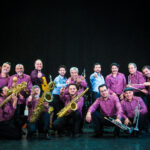
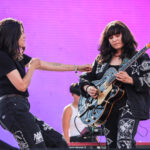
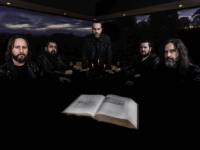
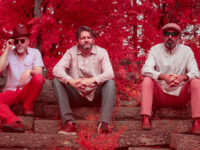



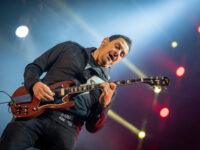
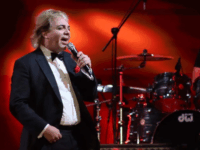
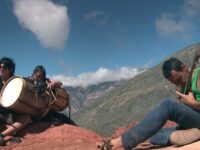
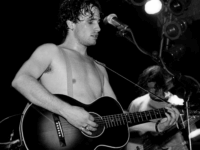
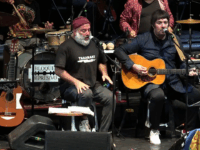



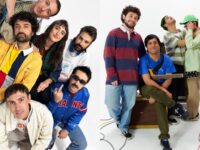
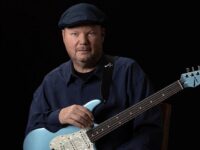

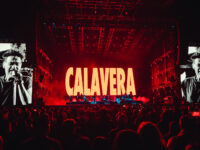


0 Comments